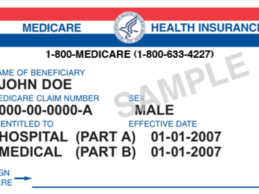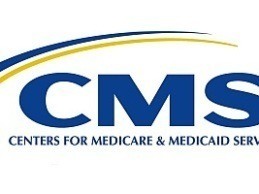MACRA seems to be the talk of the town right now. MACRA and MIPS and APM and the dozens of sub-acronyms flying around like so many arrows in this Game of Thrones, Battle of the Bastards. The Medicare Access and CHIP Reauthorization Act of 2015 (MACRA) was signed into law over a year ago. That’s right, MACRA is the “law of the land” now, and it became law of the land with overwhelming bipartisan support in Congress and with much lobbying and cheerleading from medical associations. MACRA is not a
Read More
Healthcare Reform| Health Reform | Policy, News, Analysis, Insights - HIT Consultant
3 Ways Private Exchanges Can Help Provider-Sponsored Plans Thrive
Editor's Note: Jonathan Rickert is the CEO and Co-founder of Array Health, a provider of private insurance exchange technology that simplifies the process of buying health insurance with e-commerce platform. Provider-sponsored plans (PSPs) are a disruptive force in today’s evolving healthcare market. By combining healthcare financing and care delivery with strong, familiar brands in the local community, PSPs are able to break the traditional constraints of the fee-for-service model and deliver
Read More
6 Implications for 2017 Medicare Advantage & Medicare Part D Programs
Editor's Note: Kyle Stapp is the Program Director at Eligibility.com where he oversees the educational center inside Eligibility.com and works daily with program applicants to answer their questions. His programs include Medicare, Unemployment and more. Follow him on Twitter at @kyle_stapp or connect with him on LinkedIn.According to the Center for Medicare and Medicaid Services (CMS), 32% of Medicare beneficiaries are enrolled in a Medicare Advantage plan, amounting to 17.1 million people. This
Read More
At The Heart & Soul of MACRA Is Waste
Ms. Jeannie is a 65 years old woman, slightly overweight with mild hypertension that is perfectly controlled. Ms. Jeannie is the office manager at Dr. Abrams, the pediatrician down the hall, who’s been taking care of your kids since you moved here. Ms. Jeannie called earlier because her allergies are killing her today and she’s out of refills for her blood pressure meds anyway. After an uneventful 15 minutes, and a brief chat in the hallway, Ms. Jeannie pays her $15 copay and heads back to work.
Read More
Why Healthcare Must Never Be Allowed To Become A System
The Merriam-Webster dictionary has many definitions for the term system, but the most straightforward, and arguably the most applicable to our health care conversation is “a regularly interacting or interdependent group of items forming a unified whole”. The common wisdom is that our health care system is broken and hence our government is vigorously attempting to fix it for us through legislation, reformation and transformation. We usually work ourselves into a frenzy arguing how the government
Read More
CMS Launches Comprehensive Primary Care Plus Model
On Monday, the Centers for Medicare & Medicaid Services (CMS) announced its largest-ever initiative to transform and improve how primary care is delivered and paid. The initiative called the Comprehensive Primary Care Plus (CPC+) model will be implemented in up to 20 regions and can accommodate up to 5,000 practices, which would encompass more than 20,000 doctors and clinicians and the 25 million people they serve. The initiative builds on the Comprehensive Primary Care initiative launched
Read More
Survey: Most Americans Don’t Associate Price with Quality Healthcare
With growing efforts to provide people with information about health care prices, some health care experts have expressed concern that patients may avoid low-price care if they associate price with low quality. However, most Americans do not associate the price of care with the quality healthcare, according to an analysis of survey data published in the April issue of Health Affairs.While health care prices vary widely throughout the country, there is no evidence that higher prices are
Read More
Senate & House Committee Leaders Demand Answers on 316 Security Breaches on HealthCare.gov
Republican committee leaders in the Senate and House today asked the administration for information about the 316 security breaches on HealthCare.gov catalogued in a new report released by the nonpartisan government watchdog, the Government Accountability Office (GAO). Between October 2013 to March 2015, HealthCare.gov had 316 security incidents, including 41 which involved personally identifiable information. The GAO reported that HHS does not have complete records of how many people these
Read More
What Is The Financial Impact of Value Based Healthcare for Physicians?
The Centers for Medicare and Medicaid Services (CMS) is working hard to transition physicians’ payments from volume to value of services. The current Acting Administrator at CMS is a former top executive at United Healthcare, a commercial health insurance corporation. The previous Administrator at CMS is currently the president and CEO of America’s Health Insurance Plans (AHIP), which is the dominant health insurance lobbying group. It may therefore behoove us to rephrase the opening sentence:
Read More
5 Healthcare Supply Chain Trends to Watch in 2016
For the past several years, spurred by regulatory healthcare reform and the overarching need to make the industry more sustainable, the healthcare supply chain has evolved from simply a transaction-driven process into a strategic, data-driven operation. As a result, the healthcare supply chain acts as a backbone for the industry’s drive to reduce costs while simultaneously improving patient care. With the last few years defined by supply chain innovation and exploration in healthcare, Global
Read More








